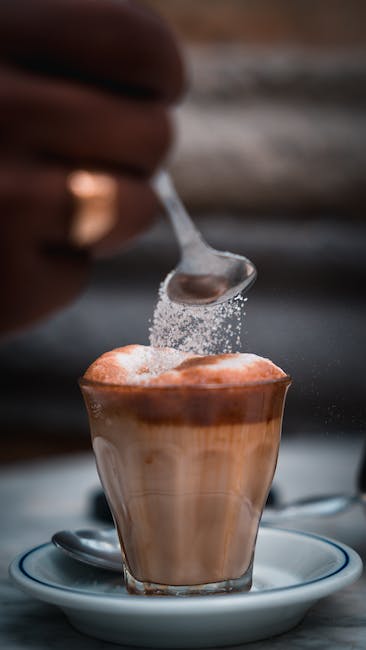Monk Fruit vs Stevia: The Ultimate Sweetener Showdown
Are you on a quest to find the perfect natural sweetener that satisfies your sweet tooth without the added calories or sugar spikes? Look no further! In this comprehensive guide, we’ll dive deep into the world of natural sweeteners, focusing on two popular choices: monk fruit and stevia. Discover which sweetener reigns supreme for your health and taste preferences.
Introduction: The Sweet Dilemma
In a world where sugar consumption is linked to numerous health issues, many health-conscious individuals are turning to natural sweeteners as a healthier alternative. Monk fruit and stevia have emerged as frontrunners in this sweet revolution. But with so much information out there, it can be challenging to determine which one is the better choice for you. This article will explore the benefits, drawbacks, and common uses of monk fruit and stevia, helping you make an informed decision in your pursuit of a healthier lifestyle.
What is Monk Fruit?
The Origins and Benefits of Monk Fruit
Monk fruit, also known as Luo Han Guo, is a small, round fruit native to Southeast Asia. It has been used for centuries in traditional Chinese medicine for its health benefits and sweet flavor. The sweetness of monk fruit comes from mogrosides, which are antioxidants that are much sweeter than sugar but contain no calories.
How Monk Fruit is Used in Foods
Monk fruit sweeteners are created by removing the seeds and skin of the fruit, crushing it, and collecting the juice. The mogrosides are then separated and dried into a concentrated powder that can be used in various foods and beverages. Monk fruit is versatile and heat-stable, making it suitable for baking and cooking.
What is Stevia?
The Stevia Plant and Its Sweet Properties
Stevia is derived from the leaves of the Stevia rebaudiana plant, native to South America. It has been used for hundreds of years by the indigenous people of the region to sweeten drinks and as a medicine. Steviol glycosides, the compounds responsible for stevia’s sweetness, are up to 300 times sweeter than sugar but also calorie-free.
Stevia’s Role in Modern Diets
Today, stevia is available in liquid drops, powder, and granulated forms, making it a convenient sugar substitute. It’s a popular choice for those managing diabetes or looking to reduce their caloric intake, as it does not spike blood sugar levels.
Comparing Monk Fruit and Stevia
Taste and Aftertaste
- Monk Fruit: Often described as having no aftertaste or a mild, fruity flavor.
- Stevia: Some people report a slight licorice-like aftertaste, which can be more pronounced in some products.
Health Benefits and Potential Concerns
- Monk Fruit: Contains antioxidants and has anti-inflammatory properties. It’s generally recognized as safe (GRAS) by the FDA.
- Stevia: Also considered GRAS by the FDA, stevia may have additional health benefits, such as lowering blood pressure and blood sugar levels.
Culinary Uses and Versatility
- Monk Fruit: Works well in a variety of recipes, from sweet beverages to desserts.
- Stevia: Ideal for sweetening drinks and can be used in baking, although it may require recipe adjustments due to its intense sweetness.
Commonly Asked Questions
Can Monk Fruit or Stevia Affect Blood Sugar Levels?
Both monk fruit and stevia are considered non-glycemic, meaning they do not raise blood sugar levels, making them suitable for diabetics and those monitoring their glucose intake.
Are There Any Side Effects to Using Monk Fruit or Stevia?
Most people can use monk fruit and stevia without experiencing side effects. However, some individuals may have sensitivities or allergies to these sweeteners. It’s always best to start with small amounts to see how your body reacts.
How Do Monk Fruit and Stevia Impact Weight Loss?
As zero-calorie sweeteners, both monk fruit and stevia can aid in weight loss by reducing overall calorie intake when used as a substitute for sugar.
Conclusion: Making the Sweet Choice
When it comes to choosing between monk fruit and stevia, it ultimately depends on personal preference regarding taste and how you plan to use the sweetener. Both offer health benefits and are excellent sugar alternatives for those looking to reduce their sugar intake without sacrificing sweetness. By considering the information provided in this article, you’re now equipped to make an informed decision that aligns with your dietary needs and goals. Sweeten your life the healthy way with the natural goodness of monk fruit or stevia!


